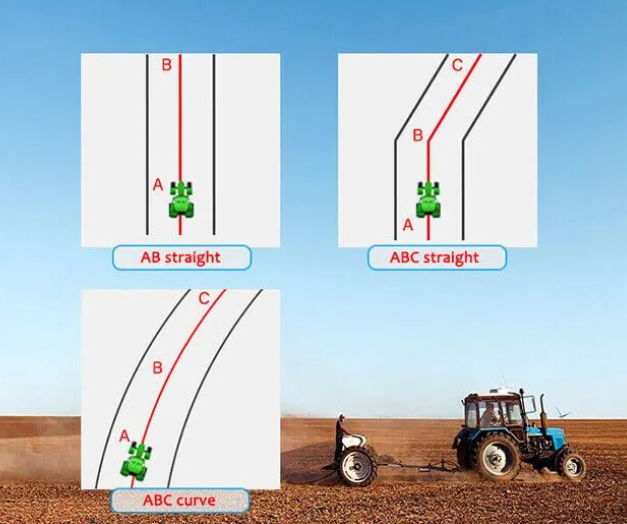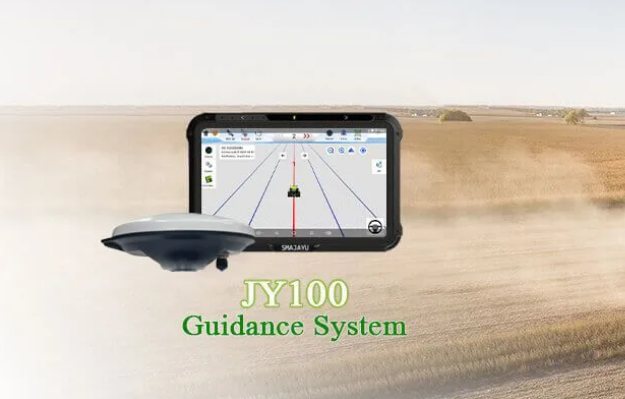In the ever-evolving landscape of modern agriculture, precision is paramount. With the global population steadily climbing, the demand for food continues to rise, placing significant pressure on farmers to maximize productivity while minimizing environmental impact. Embracing precision agriculture has become imperative, and at the heart of this revolution lies Farm GPS technology. By seamlessly integrating satellite navigation into farming practices, Farm GPS empowers farmers to optimize their operations like never before.
Introduction: Embracing Precision Agriculture
1.1 The Evolution of Precision Agriculture
Precision agriculture represents a paradigm shift in farming practices, leveraging technology to fine-tune every aspect of the cultivation process. From planting and irrigation to fertilization and pest management, precision agriculture aims to maximize efficiency and minimize waste. As the agricultural industry embraces innovation, Farm GPS emerges as a game-changer, offering unparalleled precision and control.
At the core of precision agriculture lies Farm GPS technology, a sophisticated system that harnesses the power of satellite navigation to guide farming activities with unprecedented accuracy. Developed by leading manufacturers such as SMAJAYU, Farm GPS systems utilize real-time data to optimize crop management, enhance resource utilization, and ultimately boost yields.
Increasing Crop Yields: Cultivating Success with Precision
2.1 Precision Planting: Seeding the Path to Prosperity
One of the key benefits of Farm GPS technology is its ability to revolutionize planting practices. By precisely mapping fields and guiding seeding equipment with sub-inch accuracy, farmers can ensure optimal seed placement, spacing, and depth. This precision not only promotes uniform crop emergence but also minimizes seed waste, ultimately leading to higher yields and improved profitability.
2.2 Targeted Irrigation: Nourishing Crops with Precision
Water scarcity poses a significant challenge to farmers worldwide, making efficient irrigation practices essential for sustainable agriculture. Farm GPS enables precise water management by mapping soil moisture levels and crop water requirements with unmatched accuracy. By delivering water directly to the root zone where it's needed most, farmers can minimize runoff, reduce water waste, and maximize crop yields even in arid regions.
2.3 Customized Fertilization: Nurturing Growth with Precision
Fertilizer application plays a crucial role in crop nutrition, but improper or excessive use can lead to environmental degradation and financial losses. Farm GPS technology allows farmers to tailor fertilizer application rates based on soil composition, nutrient requirements, and crop growth stages. By applying fertilizers with pinpoint accuracy, farmers can optimize nutrient uptake, minimize waste, and enhance soil health, ultimately leading to healthier crops and higher yields.

Efficient Resource Management: Sowing the Seeds of Sustainability
3.1 Water Conservation: Preserving a Precious Resource
Water scarcity is a growing concern in agriculture, making efficient water management a top priority for farmers worldwide. Farm GPS technology helps conserve water by precisely mapping field topography and soil moisture levels, allowing farmers to implement targeted irrigation strategies that minimize water waste. By optimizing irrigation practices, farmers can sustainably manage water resources, mitigate environmental impact, and ensure the long-term viability of their operations.
3.2 Fertilizer Optimization: Balancing Nutrient Needs
Excessive fertilizer use not only wastes valuable resources but also contributes to environmental pollution and ecosystem degradation. Farm GPS enables precise fertilizer application by mapping soil nutrient levels and crop requirements, allowing farmers to apply fertilizers only where and when they're needed. By minimizing over-application and leaching, farmers can reduce nutrient runoff, protect water quality, and enhance soil fertility for future generations.
Pest infestations pose a significant threat to crop health and yield, requiring proactive management strategies to mitigate damage. Farm GPS technology aids in pest management by mapping pest hotspots and guiding targeted pesticide applications with surgical precision. By treating affected areas only, farmers can minimize pesticide use, reduce environmental impact, and preserve beneficial insects, ultimately promoting healthier crops and higher yields.
Farm GPS: Pioneering Environmental Sustainability in Agriculture
4.1 Harnessing Precision for Sustainability
Precision agriculture has emerged as a beacon of hope in the quest for sustainable farming practices, and at its core lies Farm GPS technology. By leveraging satellite navigation and real-time data analytics, Farm GPS revolutionizes farming operations, minimizing the ecological footprint while maximizing productivity. This blog explores the pivotal role of Farm GPS in promoting environmental sustainability and its far-reaching implications for the future of agriculture.
4.2 Minimizing Ecological Footprint
Traditional farming methods often involve indiscriminate use of resources, leading to soil degradation, chemical runoff, and habitat destruction. Farm GPS technology offers a solution by enabling precise targeting of inputs such as water, fertilizers, and pesticides. By mapping soil variations and crop requirements with unparalleled accuracy, farmers can minimize waste and environmental impact, preserving soil health and biodiversity for future generations.

4.3 Soil Health and Chemical Runoff Reduction
Healthy soil forms the foundation of sustainable agriculture, yet conventional farming practices can degrade soil quality over time. Farm GPS plays a crucial role in soil conservation by facilitating precision nutrient management and erosion control. Studies have shown that precision agriculture techniques, including Farm GPS, contribute to improved soil structure, increased organic matter content, and reduced chemical runoff. By minimizing soil disturbance and optimizing crop rotations, farmers can enhance soil health and productivity while mitigating environmental risks.
Empowering Livestock Management with Precision
5.1 Beyond Crop Farming: Optimizing Livestock Management
While Farm GPS is often associated with crop farming, its applications extend far beyond the fields to include livestock management. By tracking animal movements, monitoring grazing patterns, and optimizing feeding schedules, Farm GPS enhances overall farm productivity while promoting animal welfare. This integrated approach to farming allows farmers to maximize resource utilization, minimize feed waste, and ensure optimal conditions for livestock health and growth.
5.2 Improving Animal Welfare and Productivity
Farm GPS technology empowers farmers to make informed decisions regarding livestock management, leading to improved animal welfare and productivity. By monitoring animal behavior and health parameters in real time, farmers can detect signs of distress or illness early, allowing for timely intervention and care. Additionally, precision feeding systems guided by Farm GPS enable precise nutrient delivery tailored to individual animal requirements, optimizing growth rates and feed efficiency while reducing environmental impact.
Embracing Future Innovations and Opportunities
6.1 The Future of Farm GPS Technology
As technology continues to evolve, the future of Farm GPS holds immense promise for agriculture and beyond. Advancements in artificial intelligence, machine learning, and robotics are poised to revolutionize farming practices, further enhancing the precision and efficiency of Farm GPS systems. From autonomous drones for aerial monitoring to smart sensors for real-time data collection, future innovations in Farm GPS technology are poised to unlock new opportunities for sustainable agriculture.
6.2 Capitalizing on Emerging Opportunities
Wholesale buyers in the agricultural industry stand to benefit greatly from investing in Farm GPS solutions. By embracing precision agriculture and environmental sustainability, wholesale buyers can differentiate themselves in the market, meet consumer demand for sustainably sourced products, and capitalize on emerging opportunities in the agricultural sector. From improved product quality and consistency to enhanced supply chain traceability, Farm GPS offers a competitive edge that can drive long-term success and profitability.
Conclusion: Charting a Course Towards Agricultural Excellence
In an era defined by technological innovation and environmental consciousness, precision agriculture stands as a beacon of hope for farmers seeking to navigate the challenges of modern agriculture. At the forefront of this revolution is Farm GPS technology, empowering farmers to optimize their operations with unprecedented precision and efficiency. By harnessing the power of satellite navigation, farmers can maximize crop yields, conserve resources, and cultivate a sustainable future for agriculture. As we chart a course toward agricultural excellence, Farm GPS remains a guiding light, illuminating the path to prosperity for farmers around the globe.


